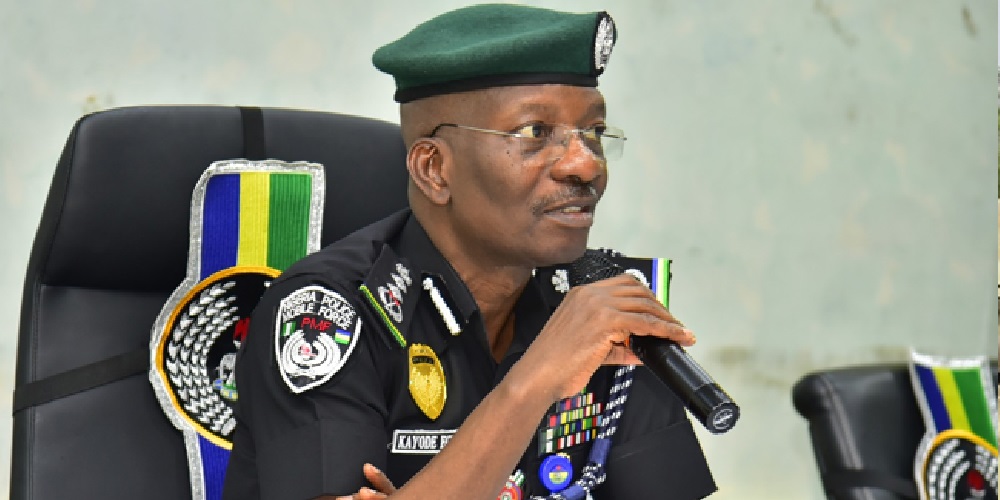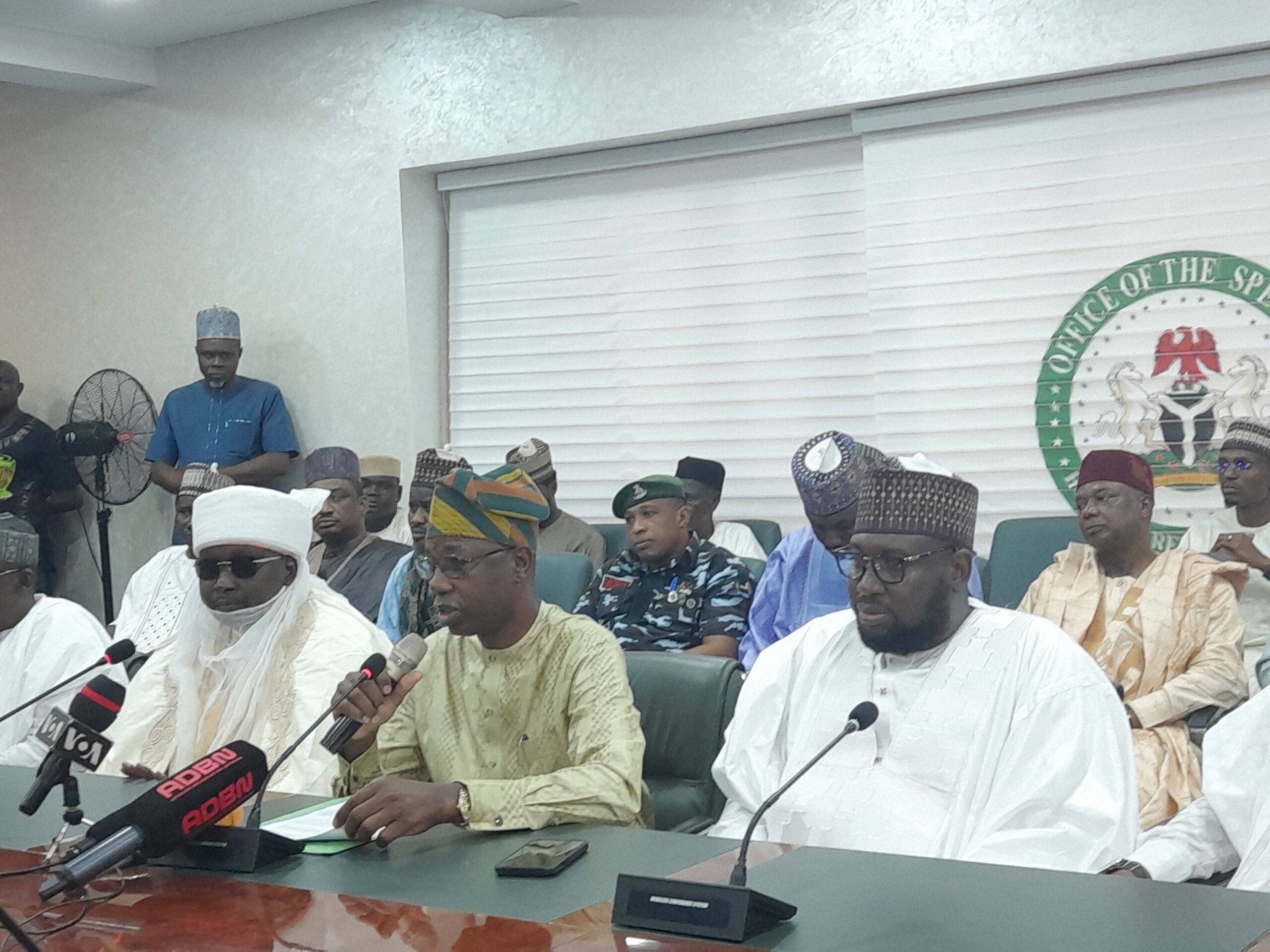News
Sad! Wigwe Built Private Tomb Before US Helicopter Crash

The tragic passing of Herbert Wigwe, the esteemed former Group Chief Executive Officer of Access Holdings Plc, alongside his wife, Chizoba, son, Chizi, and Abimbola Ogunbanjo, the former group chairman of the Nigerian Exchange Group Plc (NGX Group), has cast a sombre shadow across Nigeria.
Their untimely demise in a helicopter crash in the United States last month has left the nation in mourning.
The bereaved family last week announced the burial arrangements for these distinguished individuals, setting the stage for a heartfelt farewell.
Isiokpo, the hometown of the late business mogul, is undergoing significant transformations in preparation for the burial ceremony scheduled for Saturday, March 9, 2024.
The entire community is bustling with activity; roads are being refurbished, potholes filled, and the landscape beautified to honor Wigwe’s final return.
The Redeemed Christian Church of God (RCCG) in Isiokpo and the parish are receiving facelifts to accommodate the mourners who will gather to pay their respects.
The burial will take place amid extensive preparations, with several hectares of land being set aside for parking to manage the influx of guests expected from across the globe.
The efforts to prepare Isiokpo for this solemn occasion reflect the deep respect and affection the community holds for Wigwe, who was not only a towering figure in Nigeria’s business landscape but also a beloved son of the land.
Wigwe’s legacy includes the construction of a private mausoleum within the sprawling grounds of Wigwe International University, a testament to his foresight and meticulous planning.
The mausoleum, adorned with Italian Carrara marble and finished with foreign granite galaxy, stands as a majestic final resting place for the Wigwe family.
It features an inscription that embodies the strength and hope that Dr. Wigwe has left behind: “Do not grief, for the joy of the Lord is your strength.”
The university itself, a significant part of Wigwe’s legacy, showcases his commitment to local development and unity across diverse Nigerian communities.
With a workforce composition reflecting both local and national contributions, the institution is a symbol of Wigwe’s detribalized vision and philanthropic spirit.
A credible source who spoke with Vanguard said, “He built this private cemetery before he started the university. His house here has been designed to have a special gate and walls separated from the university. I can tell you that he had a big vision. Very good vision and he was making efforts to ensure that those visions came to a reality. But what I cannot tell you right now is whether those visions will still be achieved.
“It is only the owner of the vision that can implement his visions to the letter. I cannot say if those visions including the university will be accomplished in line with the dreams of the owner of the vision”.
News
Finally, IGP approves hunger protests across Nigeria

The Nigerian police has finally approved the planned nationwide protests and outlined conditions for participants.
The Inspector General of Police, Kayode Egbetokun, revealed this on Friday while addressing journalists in Abuja.
He urged all groups planning to participate in the proposed nationwide protest to submit their details to the Commissioners of Police in their respective states.
The police boss said this was to ensure the protest was peaceful.
Egbetokun said, “We acknowledge the constitutional right of Nigerian citizens to peaceful assembly and protest.
“However, in the interest of public safety and order, we urge all groups planning to protest to provide necessary details to the Commissioner of Police in the state where the protest is intended to take place.
“To facilitate a successful and incident-free protest, they should please provide the following information: state the proposed protest routes and assembly points; expected duration of the protest; and names and contact details of protest leaders and organisers.”
The police boss said the information expected from the organisers also include measures to prevent hijacking by criminal elements, as well as key identifiers for possible isolation of potential troublemakers.
By providing the information, he said, the police will be able to deploy adequate personnel and resources to ensure public safety.
He said the police needed to know the specific routes and areas for the protest to avoid conflicts with other events or activities.
Mr Egbetokun said the police will “establish clear communication channels with protest leaders to address any concerns or issues that may arise; minimise the risk of violence, property damage, or other criminal activity.
“We encourage all protesters to cooperate with the police, obey the law, and adhere to global best practices for peaceful assembly to guarantee a safe and successful exercise of their rights.
News
Reps North-West Caucus Beg Youths, Citizens In The Region Not To Join Planned Protest

News
Reps Applaud FCT Minister, Wike On AICL Improved Revenue, Infrastructure

-

 News23 hours ago
News23 hours agoIwuanyanwu was a Heavyweight in all ramifications-Abaribe
-

 News22 hours ago
News22 hours agoTinubu, Southern Govs Mourn Iwuanyanwu
-

 News22 hours ago
News22 hours agoSokoto Governor, Aliyu’s Wife Holds Lavish Birthday As Guests Spray Dollar Notes On Her Amid Hunger, Hardship
-

 News22 hours ago
News22 hours agoProtest: President Tinubu In Closed-door Meeting With Traditional Rulers (Video)
-

 News18 hours ago
News18 hours agoNationwide protest: ‘Airport Is Filled Up, Govs, Senators, Reps, Ministers Traveling Abroad’ — Fayose
-

 News23 hours ago
News23 hours agoIGP Orders DPOs, Their Men To Storm Vulcanizer Shops Ahead Of Planned Nationwide Protest
-

 News23 hours ago
News23 hours agoTinubu’s Presidency Is Failing Nigerians – Afenifere
-

 Metro22 hours ago
Metro22 hours ago8 School Children Rescued In Lokoja Auto Crash







